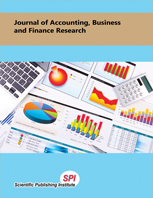The impact of macroeconomic policy on the financialisaton of the real economy: From the perspective of joint fiscal and monetary policy
DOI:
https://doi.org/10.55217/102.v19i1.794Keywords:
Corporate tax burden, Macro policy, Money growth rate, Real manufacturing sector, Transition from real to virtual economy.Abstract
The purpose of this study is to examine the impact of macroeconomic policies, especially fiscal and monetary policies, on the financialisaton of the real economy. The panel data models are employed to explore how national policies could curb the adverse trend of financialisaton. The empirical analysis reveals that fiscal and monetary policies are significantly correlated with the degree of financialization. Specifically, tight fiscal policies and loose monetary policies tend to deepen the financialization of the real economy, while the opposite can alleviate it. It is recommended to formulate differentiated fiscal policies and adopt structural monetary policies to mitigate the financialization of the real economy. These insights can guide policymakers in designing strategies that promote the healthy development of the real economy.


